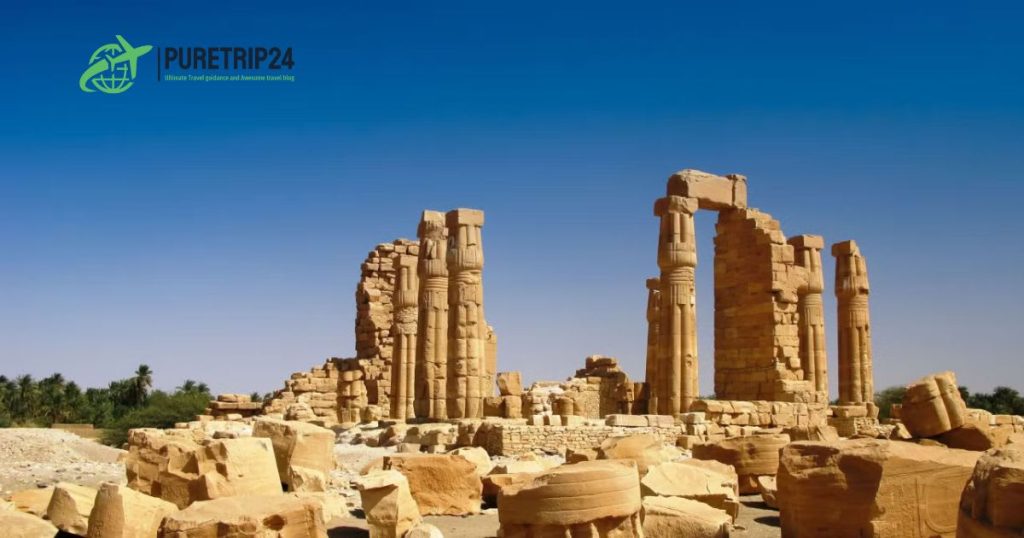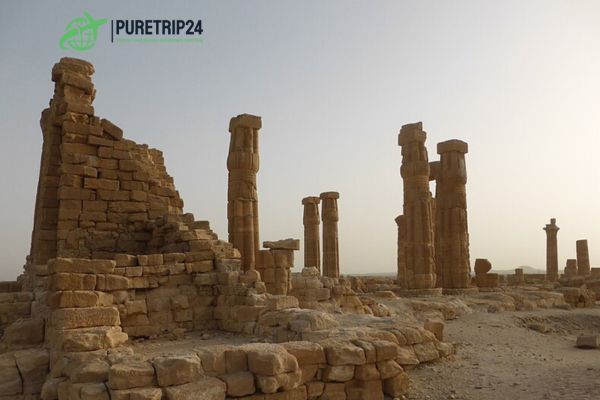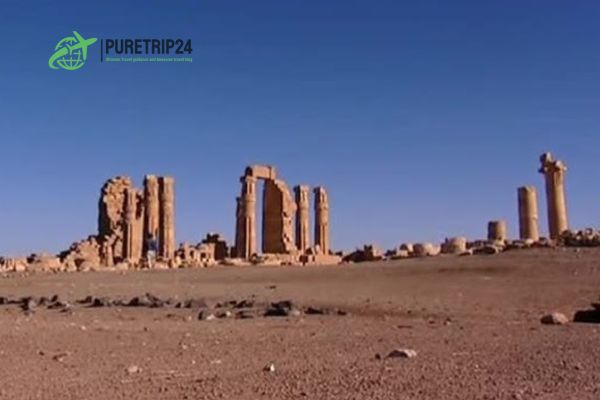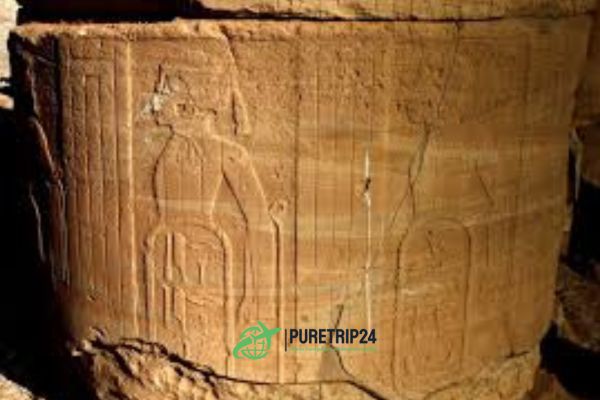Located in northern Sudan, Soleb is one of the most captivating archaeological sites that provides travelers with an insight into Nubian civilization. The town of Soleb is well-known for its intact temples and beautiful yet breathtaking Nile landscape -Solebis a popular destination among history lovers, including explorers. Focusing on the historical importance of Soleb, its main points of interest, and some practical tips to help you prepare for your journey.

Why Visit Soleb?
Soleb is frequently described as Sudan’s most important archaeological site, partly because of the Temple of Amun (constructed in the 14th century BC during the reign of Pharaoh Amenhotep III). Based on the amalgamation of its wide array of history and natural beauty, this place is inarguably a cosmically mystical subject for worshipers who get tantalized by venerable past civilizations.
Historical Significance

Soleb was once an essential component of the ancient Kingdom of Kush and has further served as a religious center devoted to the god Amun. The temple complex is a testament to feats of monumental architecture with the handiwork of ancient Nubian builders. This also helped it become a very important site in trade and religion as well, making Orakzai one of the most culturally significant areas in its region.
Planning Your Visit
Best Time to Visit
The best time to go Soleb is during November and February when temperatures are lower. That way you can visit without the intense heat of a northern Sudan summer.
Getting There
The nearest major airport is Khartoum, the capital of Sudan. It is possible to catch a domestic flight from Khartoum straight through to the nearest town of Dongola, four hours away by car from Soleb.
The road route from Khartoum to Soleb is a single nonetheless packed with adventure Discover more about it! Distance is about 650kms which will take around 10-12 hours to cover the journey. Ensure a driver who is knowledgeable about the route, as certain parts of the area may not be appropriately marked.
Accommodation
There is little in the way of accommodation at Soleb, but you can stay overnight nearby and explore other ruins before resting your head back in Dongola. Popular choices include:
Dongola Hotel- This is more of a budget hotel with comfortable basics and a hospitable nature.
Nile Resort Hotel: For the more luxury-minded, this hotel has a lovely setting overlooking the Nile River.
Local Cuisine
While you are in Dongola, take the time to try some traditional Sudanese dishes. Many local places if you want to eat staples like
Ful Medames:One of the healthiest fava bean recipes, and a popular breakfast dish.
Koshari:A robust combination of rice, lentils, and pasta normally seasoned with tomato sauce
Kebab:Popular among both locals and tourists, grilled meat on skewers.
Exploring Soleb

Key Attractions
- The Temple of Amun
The most interesting element at Soleb is the Temple of Amun, one of the largest and best preserved from this period in Kush. The temple has remarkable columns and carvings, which are resplendent in the architectural skill of its creators. Wandering around the half-intact ruins at this awe-inspiring temple site provides lovely vistas of the Nile and surrounding countryside.
- The Sacred Lake
Next to the temple is the Sacred Lake – a space that was used for ceremonial purposes by ancient devotees. A calm water scene makes the perfect atmosphere for drinking or thinking. It is also a popular place for photos, from morning to sunset.
- Nearby Archaeological Sites
If you visit Soleb, be sure to also check out some of the other archaeological sites located close by such as Jebel Barkal or the meroe sudan. By reading the article, have more information about how culturally important this region is and what was left of Nubian civilization.
Local Guides
Soleb can be a 100-fold experience if you go for local people as your guides. Guides can give you detailed explanations of the importance and history behind such spots including what happened here in case I have missed something. From there, they can show you around and advise on customs in the area.
Soleb Travel Tips at puretrip24

- Dress Appropriately
Northern Sudan can be very hot, so pack some cotton clothing and lightweight clothes. This said it is also important to dress respectfully according to the local custom. A hat with a broad brim and sunglasses can also successfully shield you from the sun.
- Stay Hydrated
Since it is a dry desert climate there are chances of getting dehydrated as well, hence you have to prepare a lot; of carafts water especially for the archeological spot.
- Respect the Sites
Because Soleb is a historical site, it must be treated with the same reverence as any other sacred remains. Do not scale ancient structures or tamper with fragile engravings.
- Learn Basic Arabic Phrases
Although many of the locals may have some knowledge of English, learning a minimum amount of Arabic phrases can improve your experiences and demonstrate an appreciation for their local culture.
Conclusion
Soleb is one of those extraordinary places that marries impressive scenery alongside a complex yet interesting tapestry of history. With everything from the incredible Temple of Amun to the serene Sacred Lake, there is no shortage of things for visitors to rediscover and appreciate. For those interested in archaeology, or simply looking to explore more of the beauty that is Sudan, Soleb offers a unique travel opportunity.
Check out Puretrip24 for other travel tips and guides. Com is your ultimate resource for exploring the wonders of this world!
